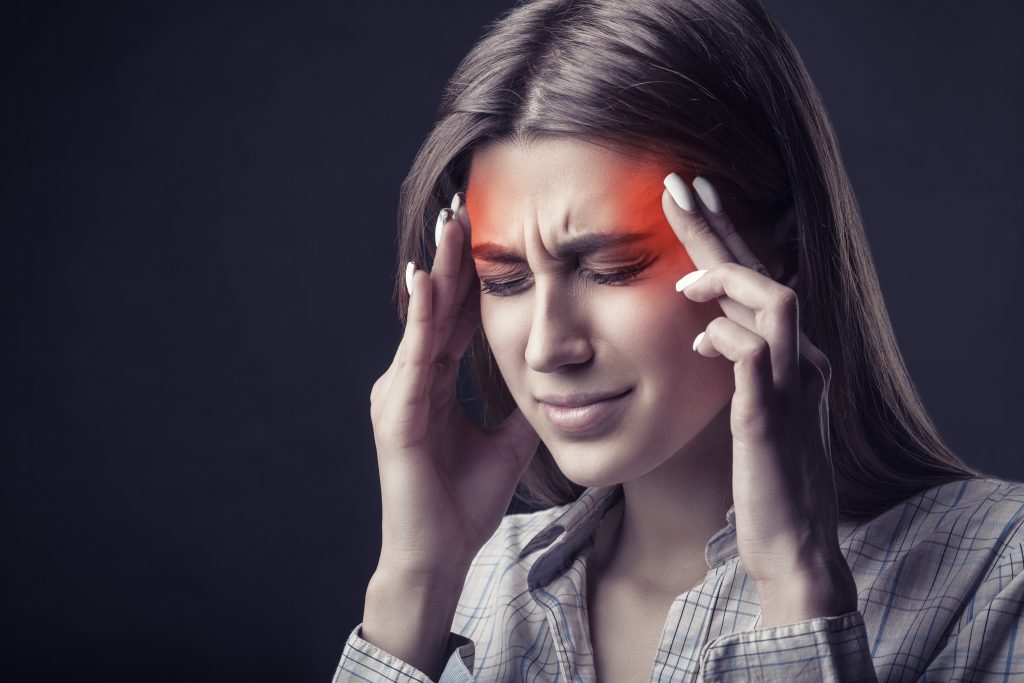February 17, 2022
When To Worry About a Headache
Headaches are a common symptom of many different health conditions. The burden of severe headache and migraine is high in the United States, where it affects one in six Americans at least once during a three-month period, reports the journal Headache.
Headaches can be caused by a wide range of problems, some of which are more serious than others. Knowing when to worry about a headache can help you stay informed regarding when it’s time to see your doctor for help.
Here’s a guide on when to worry about a headache and how to contact Healthcare Associates of Texas when you’re ready to seek treatment.
When Is a Headache Serious?
Many headaches go away on their own within a few minutes or hours. Some headaches are caused by hunger or dehydration, which means eating a meal or drinking water can make them go away. Headaches caused by eye strain can be treated using massage or by taking a break from screen time.
A headache is serious when it doesn’t go away or is accompanied by other symptoms that indicate another health problem.
 Headaches may be serious when they meet the following criteria:
Headaches may be serious when they meet the following criteria:
- They happen frequently, all the time
- They last for several hours
- They change your mood, personality, or mental function
- They cause intense, severe pain
- You also experience a fever and stiff neck
- You also experience nausea and vomiting
- You recently suffered a blow to the head
What Are Symptoms of a Serious Headache?
Headache is usually a symptom and not a health condition by itself. If you have a headache, it usually means something else is going on with your body that’s causing the headache. Therefore, the “symptoms” of a serious headache are usually other symptoms of the health problem causing your pain.
Symptoms that may accompany a serious headache include:
- Sudden intense headache pain
- Severe or sharp headache pain for the first time
- Fever higher than 102 to 104°F
- Stiff neck
- Dizziness and fainting
- Loss of balance and coordination
- Difficulty walking
- Nausea and vomiting
- Nosebleed
- Blurred or double vision
- Painful red eye

- Confusion
- Difficulty talking or understanding speech
- Weakness or drooping on one side of the body
- Tingling in the face that lasts for longer than 60 minutes
- Pressure at the back of your head
- Pain that wakes you up during sleep
- Night sweats
- Pain that worsens when you change position
- Muscle or joint pain
- Hearing problems
- Unexplained weight loss
- Tenderness on your head
- Bump or injury on your head
- Swelling on your face or head
- An animal bite
- Seizures
- Headaches that occur when you have cancer
- Headaches that first develop over the age of 50
What Causes Serious Headaches?
Serious headaches can be a symptom of a serious underlying health condition. This is why it’s important to see your doctor right away if you are ever experiencing the above symptoms of a serious headache.
Common causes of serious headaches include:
- Severe dehydration
- High blood pressure
- Concussion or head injury

- Tooth or gum infection
- Preeclampsia
- Heatstroke
- Stroke
- Brain infection, such as meningitis
- Meningococcal disease (infection of the blood, brain, or spinal cord)
- Brain tumor
- Brain aneurysm
- Brain hemorrhage
- Cancer
- Capnocytophaga infection from an animal bite, usually a dog or cat bite
What Are Types of Headaches To Worry About?
There are more than 100 types of headaches, reports Cedars-Sinai. However, there are some types of headaches you should worry about that require immediate medical attention. These headaches are related to stroke, heatstroke, concussion, and preeclampsia.
Stroke
Most strokes are caused by a clogged artery in the brain that blocks blood flow. A severe headache that comes on suddenly may indicate you are having a stroke.
Call emergency medical services immediately if you are experiencing symptoms of a stroke. According to the CDC, stroke symptoms include:
- Sudden, severe headache
- Sudden numbness or weakness in the face or limbs, especially on one side of the body
- Sudden confusion
- Sudden vision problems
- Sudden loss of balance and coordination
- Sudden dizziness
- Sudden confusion and difficulty with talking and understanding speech
Heatstroke
Heatstroke occurs when your body cannot regulate its temperature. In many cases, your body temperature can rise to above 106°F within 10 to 15 minutes during heatstroke. Heatstroke can lead to disability or death when not instantly treated.
Symptoms of heatstroke include: 
- Severe headache
- Dry skin with no sweating
- Nausea and vomiting
- Sudden confusion
- Slurred speech
- Dizziness and fainting
- Muscle cramps
- Problems with balance and coordination
- Rapid heart rate
- Rapid breathing
- Seizures
Concussion
A concussion may occur following a blow to the head, such as during a sports injury or auto accident. Symptoms of a concussion include:
- Severe headache or pressure in your head
- Dizziness
- Drowsiness
- Nausea and vomiting
- Blurred or double vision
- Problems with balance and coordination
- Delayed reaction time
Preeclampsia
Preeclampsia is a pregnancy complication associated with high blood pressure. This condition usually develops after week 20 of pregnancy and can cause frequent headaches during the third trimester. When not treated, it can damage major organs and lead to death in newborn babies and their mothers.
Symptoms of preeclampsia include:
- Frequent, persistent headaches
- Nausea and vomiting
- Vision problems
- Dizziness
- Shortness of breath
- Decreased urination
- Abdominal pain
- Swelling in the face, legs, and hands
- Irritability
When To Worry About a Migraine
A migraine is a type of severe headache. A migraine causes severe pulsing or throbbing pain that usually only occurs on one side of the head. Migraines are often accompanied by symptoms including nausea, vomiting, and sensitivity to light and sound.
Many people who suffer from migraine headaches usually take medications that prevent them from happening or that reduce symptoms.
You should worry about a migraine if it is accompanied by certain other symptoms. These symptoms include:
- An abrupt, painful headache that feels like a “thunderclap”
- Fever or stiff neck
- A headache that occurs after a head injury
- Vision problems
- Seizures
- Mental confusion
- Numbness or weakness in any part of the body
- Headache that gets worse when coughing or straining
- New type of headache pain that suddenly starts after you turn 50 years old
What Are Treatment Plans for Serious Headaches?
If you are suffering from serious headaches, your doctor will work with you to find out what’s causing them. Then, your doctor will treat the underlying cause of your headaches to make them go away.
Some tests can determine what’s causing your serious headaches. These include CT scans, MRI, blood tests, and hearing and vision tests. Your doctor may also order other tests or refer you to a specialist depending on your results.
Serious headaches may be treated with medications that prevent them or that reduce the severity of their symptoms. Otherwise, treatment depends mainly on the root cause of your headache. For example, if your headaches are being caused by high blood pressure, your doctor may work with you to modify your diet or encourage you to start a fitness program.
When It’s Time To See a Doctor
See your doctor right away if you recently started experiencing headaches that are frequent or severe or accompanied by other symptoms. You should also see your doctor if your headaches don’t go away within a few hours or cannot be relieved with over-the-counter or home remedies.
How To Contact Healthcare Associates of Texas
Healthcare Associates of Texas is home to a large team of board-certified medical professionals who can work with you to diagnose and treat your headaches, including migraines. Visit our website to find the nearest location and request an appointment.
DISCLAIMER
The information featured in this site is general in nature. The site provides health information designed to complement your personal health management. It does not provide medical advice or health services and is not meant to replace professional advice or imply coverage of specific clinical services or products. The inclusion of links to other web sites does not imply any endorsement of the material on such websites.



